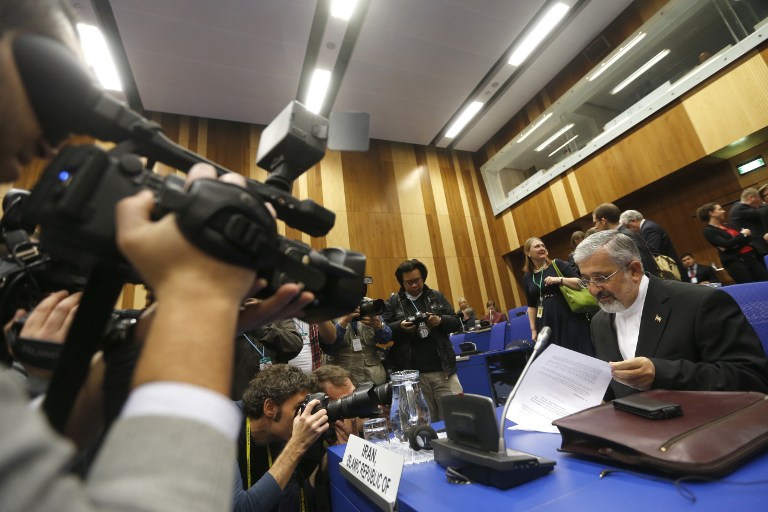SUMMARY
This is AI generated summarization, which may have errors. For context, always refer to the full article.

VIENNA, Austria – World powers keen to re-start diplomatic efforts to resolve he Iranian nuclear crisis will be closely watching a UN atomic agency trip to Tehran on Thursday, December 13, for any indications of a change in mood.
Recent comments coming out of the Islamic republic indicate however that, despite unprecedented sanctions pressure and the looming threat of military action by Israel, the Iranian leadership is not about the give ground.
Mark Fitzpatrick from the International Institute for Strategic Studies said that after a string of failed meetings between Iran and the International Atomic Energy Agency (IAEA) this year, progress would be a “pleasant surprise.”
“This would portend well for P5+1 talks, it would show that Iran was changing its strategy,” he told AFP, referring to negotiations between Iran and the US, China, Russia, Britain, France and Germany that might resume soon.
“But I think the default expectation is that there will be no progress.”
The IAEA wants Iran to address what it calls “overall, credible” evidence set out in a November 2011 report that until 2003, and possibly since, Iran carried out work “relevant to the development of a nuclear explosive device.”
With the bulk of this alleged evidence supplied by foreign intelligence services — which the IAEA says it cannot therefore share — Iran has either rejected it as fabricated or said that the activity is non-nuclear.
In particular the IAEA has pressed Iran for access to the Parchin military base where the agency says a “large explosives containment vessel” is located.
The IAEA says that “extensive activities” have been spotted by satellite at Parchin, such as the scraping and removal of earth over a 25-hectare (62-acre) area, leading to Western accusations that Iran is removing evidence.
The US envoy to the IAEA, Robert Wood, has warned that Washington will push for the agency’s board to refer Iran to the UN Security Council if Tehran displays no “substantive cooperation” by the next IAEA board meeting in March.
“Stop, shut and ship”
The P5+1 powers are more focused meanwhile on Iran’s current activities, rather than the past.
In particular the main worry is Iran’s growing capacity to enrich uranium to fissile purities of 20 percent, close to the level needed for a weapon but which Tehran’s says is for nuclear medicines.
In June in Moscow, Iran rejected a proposal for it to suspend all 20-percent enrichment, to close its Fordo enrichment plant — dug into a mountain near Qom — and to export its 20-percent stockpile.
In return, Iran wants sanctions to be eased and for recognition of its “right” to enrich, even though multiple UN Security Council resolutions have called for an immediate suspension of enrichment activity.
The six powers are now discussing whether and how to improve their offer, a process which appears to be taking longer than expected, Fitzpatrick said.
“But that shows a seriousness,” he said. “I assume that the discussions are over the sanctions relief, that is why there hasn’t been an agreement yet.”
Rhetoric coming out of Iran, which accuses Israel and the West of being behind cyberattacks and the killings of nuclear scientists, suggests that there is little room for maneuver either with the P5+1 or with the IAEA.
Russia’s P5+1 point man, Sergei Ryabkov, visited Tehran on November 14, and found the Iranians to be showing “not the least sign of opening up” and to be “particularly inactive and unreceptive,” one diplomat told AFP.
Iran’s nuclear head Fereydoon Abbasi Davani said on November 28 that Tehran would continue “with force” to expand its activities, and that Iran plans to “soon test” its new heavy water reactor at Arak — another worry for the West.
Two days later, Iran’s ambassador to the IAEA accused the West of changing the agency from a technical organization to an intelligence-driven “watchdog” to “enter the national security domain of member states”. – Simon Sturdee, Agence France-Presse
Add a comment
How does this make you feel?
There are no comments yet. Add your comment to start the conversation.